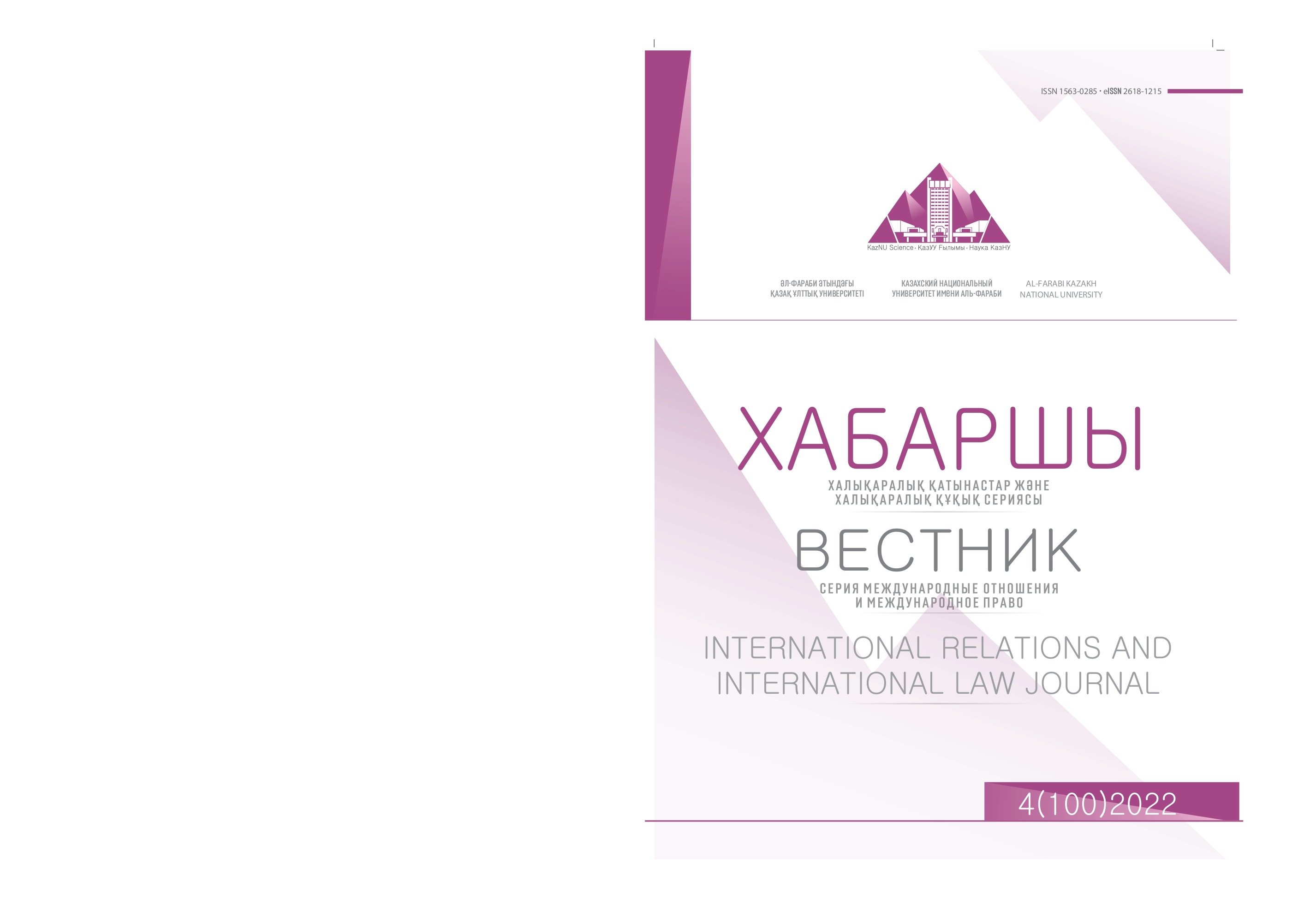Diplomacy and personality in relations between Kazakhstan and Saudi Arabia (to the 130th anniversary of Nazir Tyuryakulov)
DOI:
https://doi.org/10.26577/IRILJ.2022.v100.i4.01Abstract
Kazakhstan attaches great importance to the development of bilateral cooperation with the Kingdom of Saudi Arabia (KSA), one of the most influential and wealthy countries in the Middle East. It owns twothirds of the world’s hydrocarbon reserves, has enormous economic potential, financial and investment opportunities, and is the most important actor in the international Organization of Islamic Cooperation. These factors heighten the role of the Middle East in the foreign policy interests of the Republic of Kazakhstan. The Kingdom of Saudi Arabia, in turn, pays great attention to Kazakhstan. KSA became one of the first countries in the Arab and Muslim world to recognize Kazakhstan’s independence and establish diplomatic relations in 1994. While bilateral relations are largely pragmatic, they also extend to the spheres of culture and education, spirituality, and religion, with the role of Islam growing in importance. International and regional instability in the world highlights the necessity of having a responsible leader in the role of Head of State and of effective diplomacy. One noteworthy example of modern diplomacy is Nazir Tyuryakulov, the first Kazakh plenipotentiary representative (ambassador) of the Soviet Union in Saudi Arabia in the late 20s and early 30s of the twentieth century. Even though there is a wide array of archival documents about Nazir Tyuryakulov’s mission to Saudi Arabia, the topic is still highly relevant in Kazakh academia. The purpose of this article is to consider some of the historical and modern stories on the example of iconic personalities who have made a significant contribution to the development of Kazakh-Saudi relations.
Key words: Kazakhstan, Saudi Arabia, spheres of cooperation, diplomacy, Nazir Tyuryakulov, Islamic factor.














